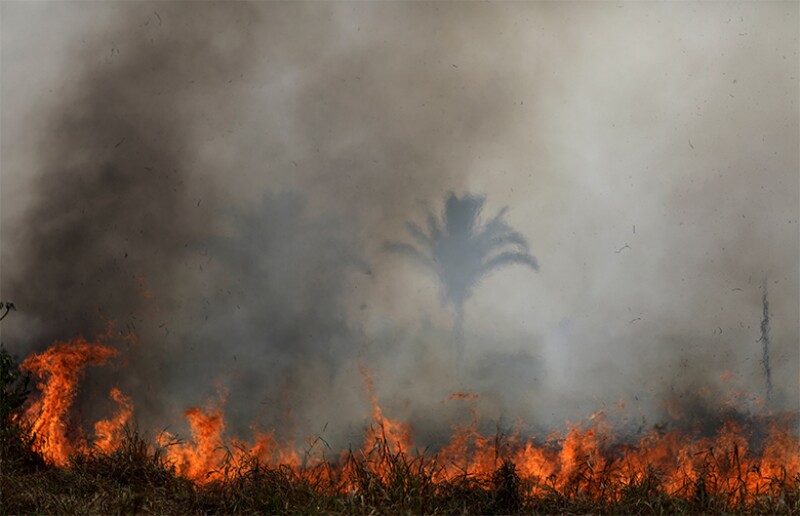
The World Bank made a stumbling defence of its track record of causing environmental and social damage when financing projects in the Amazon.
Speaking at a seminar at the IMF/World Bank meetings in Washington on October 18, Valerie Hickey, practice manager for the environment and natural resources in LAC at the World Bank, said: “Development is hard and we have made mistakes, but we have learned. [Though] sometimes we forgot what we have learned.”
Deforestation caused by illegal fires has spiked under the administration of Brazilian president Jair Bolsonaro.
Livi Gerbase, policy adviser at the Brazil-based NGO Inesc, said that deforestation had jumped by 91.7% between January and August this year when compared to 2018 – the highest rate in over a decade.
She pointed to studies that prove that much of this deforestation is directly caused by large-scale infrastructure projects, many of which have been financed by the World Bank.
“Roads and ports create pathways to deforestation and the expansion of the agricultural frontier – which in turns leads to demand for further infrastructure,” says Gerbase.
Lessons unlearned
Brent Millikan, Amazon programme director at International Rivers, an international NGO that seeks to protect the quality of rivers and help communities that live near them, says the World Bank has continually failed to learn the lessons from environmental and social catastrophes that have accompanied infrastructure projects in the country dating back to Polonoroeste, a road project linking Cuiaba and Port Velho in the western Brazilian Amazon in the 1980s.
